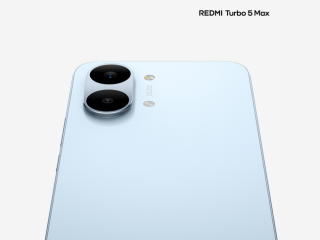- Home
- Telecom
- Telecom News
- 2G Internet to Be Phased Out By June 2019, Says Research
2G Internet to Be Phased Out By June 2019, Says Research

The entry of Reliance Jio brought about a revolution of sorts in the Indian telecom industry as the 4G-only network debuted with free high-speed Internet across the country. This resulted in an increase in data consumption in the country, and 3G handsets becoming a thing of the past. Now, it seems, is the turn of the 2G Internet on mobile devices to be phased out as 4G deepens its hold in the country. Jio was responsible for a fourfold increase in the decline of 2G networks, and is a major contributor to their early demise, a research note claims.
According data shared by Gurgaon-based Cybermedia Research (CMR), 2G networks will go offline permanently by June 2019. Faisal Kawoosa, Principal Analyst – Telecommunications and ESDM, CMR said in a research note that before Jio entered the market, 2G mobile Internet in the country were estimated to continue till 2022, with the average quarterly rate of decline around 3 percent. However, Jio and its free 4G services (at least for the first six months) resulted in a mass adoption of high-speed data, which raised the average quarterly rate of decline by four times, to 12 percent.
Soon after Jio entered the market, it was estimated 2G networks for mobile services will be phased out by the first quarter of 2020, the CMR research note says. However, market dynamics will advance this by 2-3 quarters, bringing the end of 2G Internet to around June 2019.
Kawoosa says in the research note, “With the 4G cellular capability now in a feature phone as well as bundling of entry-level smartphones by various incumbent operators, the pace towards 4G becoming the default wireless Internet access is on the rise. This translates to effectively all wireless broadband users accessing the Internet over broadband, marking not only end to the addition of narrowband wireless (2G) subscribers but also increasing the declining rate.”
To achieve this, telecom operators will have to work towards upgrading its existing 2G Internet users to high-speed 4G networks. Kawoosa in the research note says “mere bundling of the entry-level smartphone might not suffice,” and operators will have to come up with new ways to get users to upgrade. “Operators shall have to understand these consumers deeply and engage with them to manoeuvre them up the ladder,” he says.
Operators such as Airtel, Vodafone and BSNL have partnered with smartphone vendors to bring down the effective prices of low-cost, entry-level smartphones by giving cashbacks. Reliance Jio also has a 4G-enabled feature phone named Jio Phone, which will be effectively free after cashbacks. In both cases, customers are required to pay a sum upfront to buy the handset and then buy monthly recharge packs of a certain amount in order to be eligible for the cashback.
Telcos will be able to repurpose 2G Internet infrastructure to deploy efficiently certain Internet of Thing applications, such as smart parking.
Catch the latest from the Consumer Electronics Show on Gadgets 360, at our CES 2026 hub.
Related Stories
- Samsung Galaxy Unpacked 2025
- ChatGPT
- Redmi Note 14 Pro+
- iPhone 16
- Apple Vision Pro
- Oneplus 12
- OnePlus Nord CE 3 Lite 5G
- iPhone 13
- Xiaomi 14 Pro
- Oppo Find N3
- Tecno Spark Go (2023)
- Realme V30
- Best Phones Under 25000
- Samsung Galaxy S24 Series
- Cryptocurrency
- iQoo 12
- Samsung Galaxy S24 Ultra
- Giottus
- Samsung Galaxy Z Flip 5
- Apple 'Scary Fast'
- Housefull 5
- GoPro Hero 12 Black Review
- Invincible Season 2
- JioGlass
- HD Ready TV
- Laptop Under 50000
- Smartwatch Under 10000
- Latest Mobile Phones
- Compare Phones
- Tecno Spark Go 3
- iQOO Z11 Turbo
- OPPO A6c
- Samsung Galaxy A07 5G
- Vivo Y500i
- OnePlus Turbo 6V
- OnePlus Turbo 6
- Itel Zeno 20 Max
- Lenovo Yoga Slim 7x (2025)
- Lenovo Yoga Slim 7a
- Lenovo Idea Tab Plus
- Realme Pad 3
- Garmin Quatix 8 Pro
- NoiseFit Pro 6R
- Haier H5E Series
- Acerpure Nitro Z Series 100-inch QLED TV
- Asus ROG Ally
- Nintendo Switch Lite
- Haier 1.6 Ton 5 Star Inverter Split AC (HSU19G-MZAID5BN-INV)
- Haier 1.6 Ton 5 Star Inverter Split AC (HSU19G-MZAIM5BN-INV)







![[Sponsored] Haier C90 OLED TV | Dolby Vision IQ, 144Hz OLED and Google TV in Action](https://www.gadgets360.com/static/mobile/images/spacer.png)









